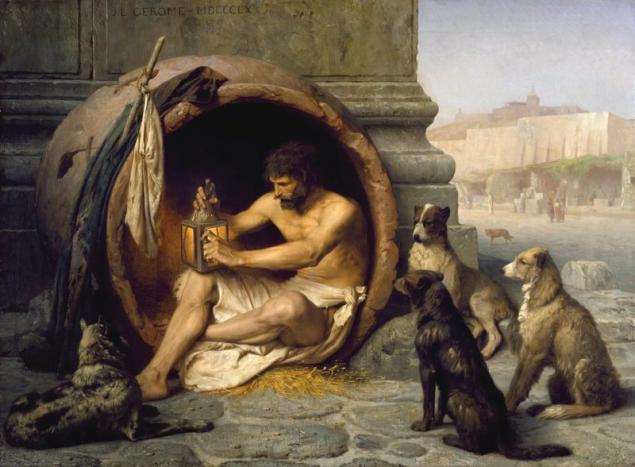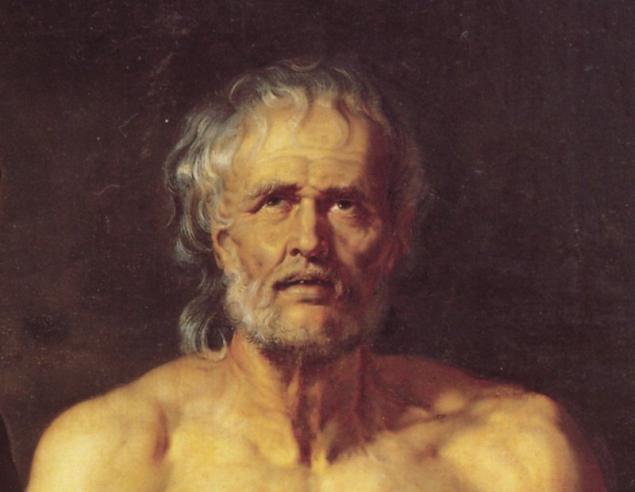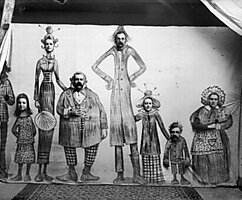9 famous phrases which actually mean something else
 Bashny.Net
Bashny.Net
9 famous phrases that taken out of context and actually mean something else
These phrases we all know and are constantly used in everyday speech. Here are a few examples of how much can distort the meaning of the utterance, if not in time to consult the original source.
About the dead either good or nothing"About the dead either good or nothing but the truth" — the dictum of the ancient Greek politician and poet Helena of Sparta (IV century BC), given by the historian Diogenes Laërtius (III century ad) in his essay "the Life, teachings and opinions of famous philosophers".

Love all ages yield surrenderis a Quote from "Eugene Onegin", which is often used, explaining the passionate feelings of people or with a large age difference. However, you should read the verse as a whole, it becomes clear that Alexander had in mind something quite different:
Love all ages;
But youthful, virgin hearts
Its impulses are beneficial
As vernal storms the fields:
In the rain of passions they sweeeet,
And updated, and I behold —
And life able gives
And lush color and sweet fruit.
But in the late and barren age,
At the turn of our years,
The sad passions is dead track:
So the storms of autumn cold
In the swamp meadow draw
And strip the woods around.
Live and learn
A very famous phrase that can be heard literally from every teacher and they love to cause as an argument to justify the importance of studying a particular subject, in fact, incomplete, and often wrongly attributed to Lenin.
The author of the original phrase — Lucius annaeus Seneca, and that is: "Age live — and learn how to live."

The people are silentFamous "people are silent" is considered to be the image of silent obedience of the Russian people, ready to accept any decision of the authorities and in General any power. However, Pushkin — exactly the opposite. The poem ends with the fact that after the massacre of Godunovi people represent the new king.
"MOSAL: the People! Maria Godunov and her son Feodor have poisoned themselves with poison. We saw their dead corpses.
People are terrified silence.
MOSAL: why are you silent? shout: long live the Tsar Dimitry Ivanovich!
The people are silent".
The end justifies the means
The full version of the phrase, whose author is the founder of the Jesuits Ignatius de Loyola: "If the goal is the salvation of souls, the end justifies the means".

The truth is in winethe Famous saying of Pliny the Elder "the Truth is in wine". Actually, the phrase is a continuation of "health and water". In the original "In vino veritas, in aqua sanitas".
Life is short, art is long, the Phrase "Ars longa, vita brevis" in the Russian language even further removed from the original than the Latin translation, and is understood to mean something like "manuscripts don't burn". Actually this is a quote from Hippocrates: "life is short, art long, opportunity fleeting, experience deceptive, judgment difficult." That is, simply reasoning about the complexity of medicine, the study of which a lifetime is not enough. In the original, instead of the word Ars ("art") is the Greek word τέχνη, which is not necessarily "art" but as well "craft" or "skill".
Religion is the opium for the peoplePhrase popular among atheists, is also taken out of context. Karl Marx wrote in the introduction to the "critique of the Hegelian philosophy of right" (1843): "Religion is the air of the oppressed creature, the heart of a heartless world and the soul of a soulless situation. Just as it is — soul of soulless conditions, religion is the opium for the people!" That is the religion reduces the pain of social existence in inhuman society.
The exception proves the ruleThis sentence, which is obviously illogical, used completely wrong. An expression is formed like a paraphrase of the speech of Cicero in defence of Lucius Cornelia Balba older. Accused him of, he was given Roman citizenship illegally. The case was heard in 56 BC
Balbi was a native of Gades (modern. the name Cadiz), served under Pompey, who had come together and were friends; Pompey and was a sponsor of his citizenship. Motivated the charges were, as in most of the then high-profile cases, political. Though he Balbi was active politically, but the shot, of course, went on triumviriv First triumvirate (Caesar, Crassus and Pompey).
In defense of Bulba were not only Cicero, but Pompey and Crassus. The case was won. In his speech Cicero gives such an argument. In some interstate agreements on mutual recognition of Rome with the neighbouring countries was a paragraph explicitly excludes dual citizenship: residents of those countries could not become Roman citizens, not giving up at first from her. Citizenship Balba was double; it was a formal prosecution. Cicero says that, as in some agreements, this exclusion is, that those agreements, in which it is not, obey the opposite rule, namely allow dual citizenship. In other words, if an exception exists, there must be a rule from which the exception is made, even if never explicitly formulated. Thus, the existence of the exception confirms the existence of a regulation from which these exceptions are made.
Don't exceptions prove the rule, and the existence of exceptions proves the existence of the rules!
P. S. And remember, just changing your mind — together we change the world! © econet
Source: izbrannoe.com/news/mysli/9-izvestnykh-fraz-kotorye-vyrvany-iz-konteksta-i-na-samom-dele-oznachayut-sovsem-drugoe/
These phrases we all know and are constantly used in everyday speech. Here are a few examples of how much can distort the meaning of the utterance, if not in time to consult the original source.
About the dead either good or nothing"About the dead either good or nothing but the truth" — the dictum of the ancient Greek politician and poet Helena of Sparta (IV century BC), given by the historian Diogenes Laërtius (III century ad) in his essay "the Life, teachings and opinions of famous philosophers".

Love all ages yield surrenderis a Quote from "Eugene Onegin", which is often used, explaining the passionate feelings of people or with a large age difference. However, you should read the verse as a whole, it becomes clear that Alexander had in mind something quite different:
Love all ages;
But youthful, virgin hearts
Its impulses are beneficial
As vernal storms the fields:
In the rain of passions they sweeeet,
And updated, and I behold —
And life able gives
And lush color and sweet fruit.
But in the late and barren age,
At the turn of our years,
The sad passions is dead track:
So the storms of autumn cold
In the swamp meadow draw
And strip the woods around.
Live and learn
A very famous phrase that can be heard literally from every teacher and they love to cause as an argument to justify the importance of studying a particular subject, in fact, incomplete, and often wrongly attributed to Lenin.
The author of the original phrase — Lucius annaeus Seneca, and that is: "Age live — and learn how to live."

The people are silentFamous "people are silent" is considered to be the image of silent obedience of the Russian people, ready to accept any decision of the authorities and in General any power. However, Pushkin — exactly the opposite. The poem ends with the fact that after the massacre of Godunovi people represent the new king.
"MOSAL: the People! Maria Godunov and her son Feodor have poisoned themselves with poison. We saw their dead corpses.
People are terrified silence.
MOSAL: why are you silent? shout: long live the Tsar Dimitry Ivanovich!
The people are silent".
The end justifies the means
The full version of the phrase, whose author is the founder of the Jesuits Ignatius de Loyola: "If the goal is the salvation of souls, the end justifies the means".

The truth is in winethe Famous saying of Pliny the Elder "the Truth is in wine". Actually, the phrase is a continuation of "health and water". In the original "In vino veritas, in aqua sanitas".
Life is short, art is long, the Phrase "Ars longa, vita brevis" in the Russian language even further removed from the original than the Latin translation, and is understood to mean something like "manuscripts don't burn". Actually this is a quote from Hippocrates: "life is short, art long, opportunity fleeting, experience deceptive, judgment difficult." That is, simply reasoning about the complexity of medicine, the study of which a lifetime is not enough. In the original, instead of the word Ars ("art") is the Greek word τέχνη, which is not necessarily "art" but as well "craft" or "skill".
Religion is the opium for the peoplePhrase popular among atheists, is also taken out of context. Karl Marx wrote in the introduction to the "critique of the Hegelian philosophy of right" (1843): "Religion is the air of the oppressed creature, the heart of a heartless world and the soul of a soulless situation. Just as it is — soul of soulless conditions, religion is the opium for the people!" That is the religion reduces the pain of social existence in inhuman society.
The exception proves the ruleThis sentence, which is obviously illogical, used completely wrong. An expression is formed like a paraphrase of the speech of Cicero in defence of Lucius Cornelia Balba older. Accused him of, he was given Roman citizenship illegally. The case was heard in 56 BC
Balbi was a native of Gades (modern. the name Cadiz), served under Pompey, who had come together and were friends; Pompey and was a sponsor of his citizenship. Motivated the charges were, as in most of the then high-profile cases, political. Though he Balbi was active politically, but the shot, of course, went on triumviriv First triumvirate (Caesar, Crassus and Pompey).
In defense of Bulba were not only Cicero, but Pompey and Crassus. The case was won. In his speech Cicero gives such an argument. In some interstate agreements on mutual recognition of Rome with the neighbouring countries was a paragraph explicitly excludes dual citizenship: residents of those countries could not become Roman citizens, not giving up at first from her. Citizenship Balba was double; it was a formal prosecution. Cicero says that, as in some agreements, this exclusion is, that those agreements, in which it is not, obey the opposite rule, namely allow dual citizenship. In other words, if an exception exists, there must be a rule from which the exception is made, even if never explicitly formulated. Thus, the existence of the exception confirms the existence of a regulation from which these exceptions are made.
Don't exceptions prove the rule, and the existence of exceptions proves the existence of the rules!
P. S. And remember, just changing your mind — together we change the world! © econet
Source: izbrannoe.com/news/mysli/9-izvestnykh-fraz-kotorye-vyrvany-iz-konteksta-i-na-samom-dele-oznachayut-sovsem-drugoe/
Tags
See also
So what actually is? ..
You will be surprised: how to actually remove the ads
Things old mercilessly! 9 "no's" from the critique of fashion when choosing clothes.
10 famous photos that are actually fake
The Alfred Langley that actually holds the couple together
Why don't we know what you really want from life
Is it harmless nicknames and abbreviations, really?
10 issues that are already creating genetically modified foods
What actually causes heart disease
















